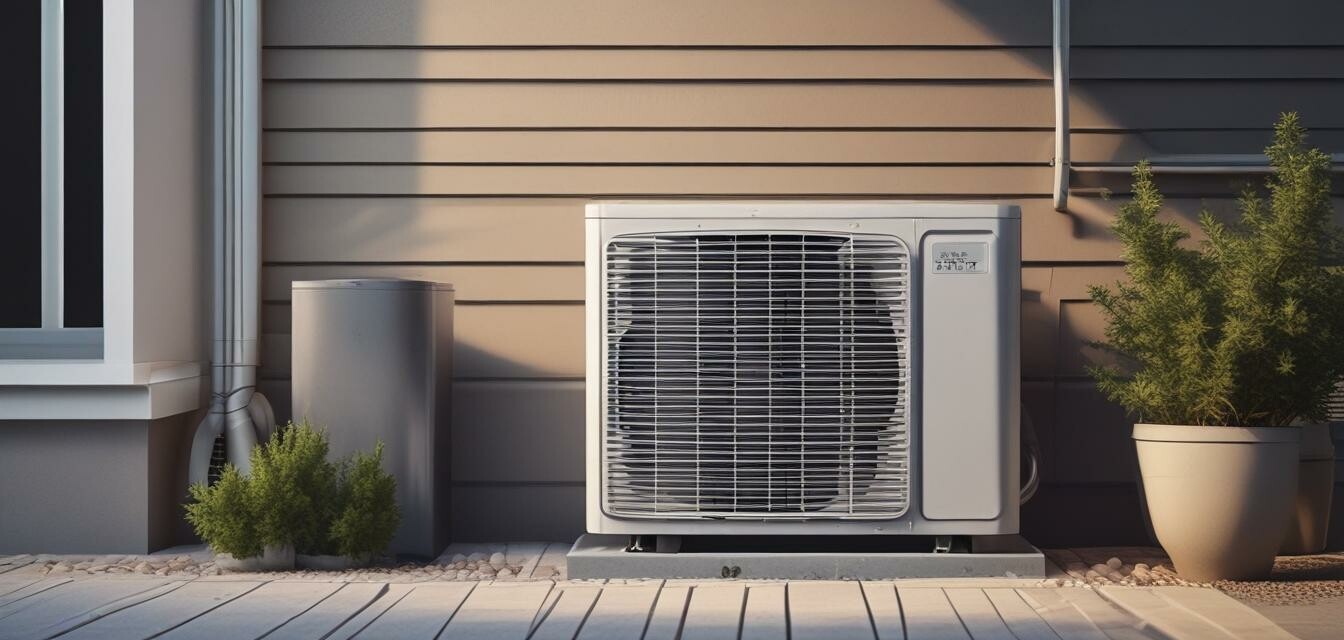
Choosing the Right Energy Efficient HVAC System
Key Takeaways
- Understand your heating and cooling needs for proper sizing.
- Look for ENERGY STAR certified models for optimal energy efficiency.
- Consider features like variable speed fans and programmable thermostats.
- Evaluate different energy ratings, including SEER and HSPF.
- Regular maintenance is crucial for system performance and longevity.
Heating, ventilation, and air conditioning (HVAC) systems play a crucial role in maintaining a comfortable environment in our homes. With the growing emphasis on sustainability and energy conservation, choosing an energy-efficient HVAC system is more important than ever. This guide will provide you with essential tips on how to select the right HVAC system that meets both your comfort and efficiency requirements.
Why consider energy efficiency?
Investing in an energy-efficient HVAC system has numerous benefits including:
- Reduced energy bills leading to long-term savings.
- Reduced carbon footprint, contributing to environmental sustainability.
- Increased home value due to modern, energy-efficient upgrades.
Key considerations for choosing an HVAC system
1. Proper sizing
One of the most critical factors in selecting an HVAC system is ensuring that it is the right size for your home. An oversized system can lead to short cycling, which reduces efficiency, while an undersized system may struggle to maintain comfortable temperatures.
To determine the right size, consider:
- Your home's square footage
- The number of windows
- The amount of insulation
- Your local climate
2. Energy ratings and certifications
Look for energy ratings that indicate the efficiency of the HVAC system. The two main ratings to consider are:
- SEER (Seasonal Energy Efficiency Ratio): Indicates the cooling efficiency of air conditioners.
- HSPF (Heating Season Performance Factor): Indicates the heating efficiency of heat pumps.
Choosing models that are ENERGY STAR certified ensures that you are selecting high-efficiency equipment that helps save both energy and costs.
3. Key features to look for
When selecting an HVAC system, consider various features that enhance performance and efficiency:
| Feature | Benefit |
|---|---|
| Variable speed blower | Adjusts airflow for enhanced comfort and efficiency. |
| Smart thermostats | Allows remote control and energy management. |
| Zoning systems | Enable tailored temperature control for different areas of the home. |
| High-efficiency filters | Improves indoor air quality and system performance. |
Understanding costs
The initial cost of an energy-efficient HVAC system can be higher than standard models, but remember, these systems often outperform regular options in long-term energy savings. Consider the following typical costs:
| System Type | Average Cost | Expected Lifespan |
|---|---|---|
| Central Air Conditioner | $3,000 - $7,000 | 15 - 20 years |
| Heat Pump | $3,500 - $8,000 | 15 - 20 years |
| Furnace | $2,500 - $6,500 | 15 - 30 years |
Installation considerations
Proper installation is vital for an HVAC system's efficiency. Choosing professional installers with experience in energy-efficient systems helps ensure optimal performance. Be sure to check for:
- Licenses and insurance
- Experience with energy-efficient systems
- Positive customer reviews
Regular maintenance
Once your HVAC system is installed, regular maintenance is essential to keep it running efficiently. Schedule annual check-ups to maintain system performance, and consider the following maintenance tips:
- Change filters regularly.
- Clean air ducts and vents.
- Ensure proper insulation around ductwork.
- Keep outdoor units clear of debris.
Pros
- Long-term savings on energy costs.
- Improved indoor air quality.
- Greater resale value for your home.
- Environmental impact reduction.
Cons
- Higher upfront costs.
- Requires professional installation.
- May need adjustments for optimal performance.
- Scheduling maintenance can be inconvenient.
Conclusion
Choosing the right energy-efficient HVAC system is a smart investment for your home. By considering the system’s size, efficiency ratings, and features, you can ensure that you’re making a choice that benefits both your wallet and the environment. For more information on efficient appliances, visit our Air Conditioners section or explore Dishwashers in our product categories. Let Twoe Appliances help you make the right choice for your home today!
